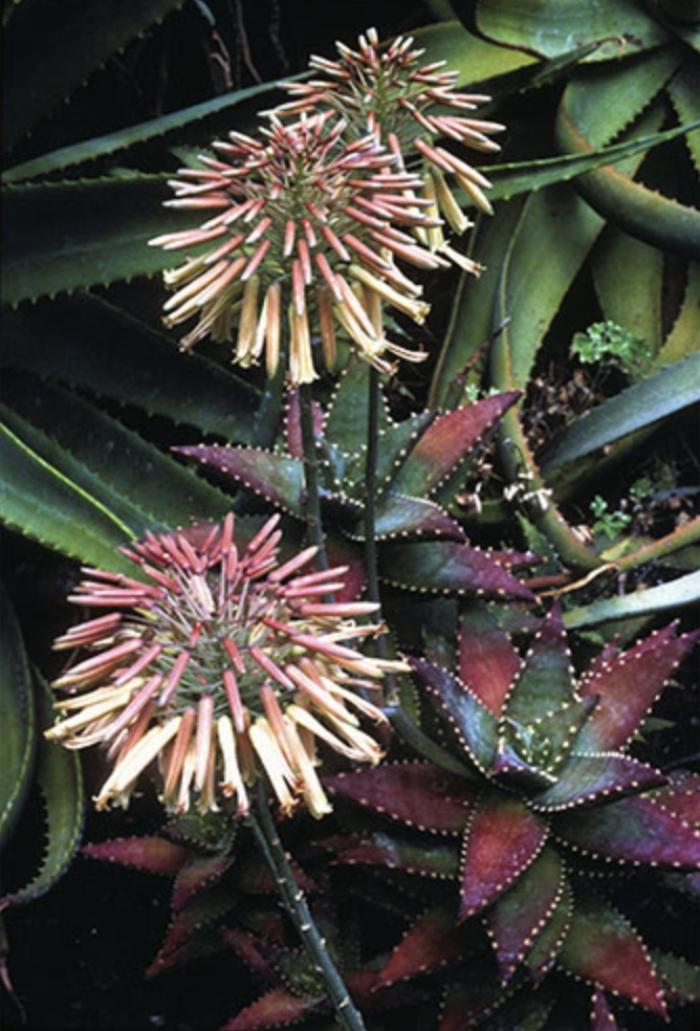Aloe 'Hellskloof Bells'
Pearson's Aloe

Description
Upright growing shrubby plant to about 2 feet tall and wide with short lanceolate gray-green leaves that blush maroon in full sun and produce a capitate head of pendant tubular flowers that are pink in bud and open to a soft pastel orange. Plant in full sun to light shade (best foliage color with brightest light) in a well-drained soil and irrigate only occasionally to infrequently. We have had plants not damaged at 25° F and have seen reports that it is hardy to at least 20° F. This unique plant will make a nice addition in the garden planted in the ground or used as a potted specimen. It is a hybrid created by Brian Kemble of the Ruth Bancroft Garden in 1991 that was the result of crossing the beautiful but slow growing, and difficult to cultivate, Aloe pearsonii with the faster growing and easy to grow Aloe mitriformis, which at the time of the cross was called Aloe distans (or A. perfoliata var. distans). Aloe pearsonii hails from an area called Helskloof in the mountainous Richtersveld of the Northern Cape province of South Africa where it forms large colonies with upright columnar branches of stubby red-blushed leaves and the pollen parent Aloe mitriformis is a plant that grows along the coast in the Western Cape province of South Africa. The cross made of these two geographically separated species resulted in a several similar hybrid plants that were distributed and this one was later named by John Trager at the Huntington Botanic Garden. It does best in full sun.
Plant Type
Succulent
Height Range
Width Range
Flower Color
n/a
Flower Season
n/a
Leaf Color
Bark Color
n/a
Fruit Color
n/a
Fruit Season
n/a
Sun
Water
Growth Rate
Soil Type
Soil Condition
Soil pH
Adverse Factors
n/a
Design Styles
n/a
Accenting Features
n/a
Seasonal Interest
n/a
Location Uses
n/a
Special Uses
n/a
Attracts Wildlife
n/a
Water Saving Tip:
Dig-up patches of weeds and undesirable grasses from turf areas.
Use water to grow the turf you want, not the weeds you don't want! Once you have eliminated what you don't want, add sod or over-seed to repair the bare areas.